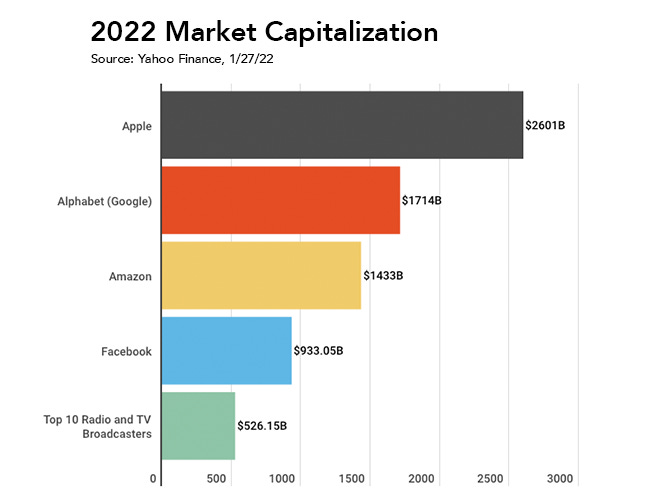Tech on Trial: Fighting for Balance in Tech
The question isn't if Big Tech has stifled competition or if it has stolen our attention. It is how easily we have allowed ourselves into believing in their superiority.
It is a well-accepted fact that, in our world, balance is essential. Every action has an opposing reaction; forces are challenged by counter-forces; one’s personality, yin, can be complemented by another’s yang.
So why do we only accept technological advances as a singleton force for good? When they, more than ever, need a countering code.
Doctors, Lawyers, Journalists, Teachers: every other profession that touches our lives has a strict and rigorous code of conduct. We monitor every new medicine that comes out, we debate laws, and teach ethics to journalists. Only with tech has our society failed so momentously.
In all my six-plus years of studying engineering, not one professor spoke about the impacts of tech on the larger society. Studies of processes and outcomes were always limited to the system at hand. Discussions about our FAANG overlords revolved around the newest research and hiring outlooks. Any criticisms we had must be shared in private, quietly among friends.
Only after I left academia, did I come across the field of technoethics. Only through documentaries and articles, did I hear about the Microsoft anti-trust trial of the 1990s and the inherent biases in social media. And only after I had already built three websites did I learn about the Web Content Accessibility Guidelines (WCAG) - a checklist that promotes the design of equitable websites, ones that can work not just for laptop and mobile screens, but also for screen readers and other assistive technologies.
Maybe it was in a course I skipped, but learning that adding a simple ‘lang’ (language) attribute to the ‘html’ element can make a world of difference to someone who relies on screen readers to hear the content correctly made me ache with remorse.
How easy is it to add a simple line of code, and how difficult it is for us to think of doing just that.
In the last decade, regulators and lawmakers have tried to cajole Big Tech into breaking up, or into adding protective safeguards, or to stop stealing an unsuspecting user’s information. But so far, their interventions have resulted in very little observable change, especially within the Meta ‘verse.
With the current overblown popularity of Gen AI and the adoption of ChatGPT in the mainstream, policy makers are finally being pressured into taking action. In the past year, we saw that regulators - especially those from the EU - have significantly ramped up their efforts.
All those of us who live in households with a mixture of Androids and iPhones witnessed a ray of hope when the EU forced Apple into replacing its custom lightning ports with USB-Cs. The hours we spend untangling the mess of chargers and tripping over white, red, and black wires may finally be drawing to a close.
Moreover, pushing for standardized designs in hardware benefits the planet. It enables longer usability windows, reusability at larger scales, faster refurbishment cycles, and opens up new markets for recycled second hand products. It’s one huge step towards achieving a Circular Economic future. Big Tech should rightfully be asked to shoulder more responsibility for the environmental pollution it has caused with the mountains of e-waste and the harmful mining practices undertaken for the sake of its “earth-friendly” virgin materials.
And somehow, these companies have managed to produce even more harm through their software. Ask any app or website developer, even any small business owner or a new blogger, and you will learn how difficult it is to break through Big Tech’s monopoly.
Though the use of Big Tech’s various platforms is supposed to help an individual reach a larger audience, very rarely does that pan out. One has to follow strict guidelines and adapt to ever-changing policies in order to deploy their apps via the app stores. Third-party developers then watch on as their innovative creations get heavily monetized by these tech giants.
For any small business, marketing costs pile up due to the internet’s reliance on Google Search and Ads. One has to pay and fight for advertising space daily across Google and Meta’s suite of social media purveyors: Instagram, Facebook, YouTube, Whatsapp. Even LinkedIn makes its money off of companies. All these pervasive costs sum up to show how difficult it is these days for small businesses and start-ups to showcase their products online.
In the war for our attention, none of us are winning.
Furthermore, Big Tech’s dominance has proven to be notoriously bad for democracy as well. Fake news runs rampant on social media. Real news outlets have been shuttered en-masse and sent to the gallows. Reading newsletters by journalists opened my eyes to how wide the perception gap between technologists and the general public really is.
We, in the tech world, believe in the superiority of the online world. We assume that advertisers moved to using Google/Meta’s Ads because of their ubiquity and ease-of-use. But in reality, this has not been a passive and natural move away from traditional advertisers like newspapers and TV channels. Instead, it has been an active pull on the side of Big Tech and the result of a series of strategic moves by their celebrity execs, and yes also, their product managers.
The media industry has been thoroughly gutted by Big Tech’s interjection as helpful middlemen. The ad revenue that used to go towards supporting independent journalists now goes to Big Tech. Several online news empires have perished in the past decade. Even famous outlets like Buzzfeed, Vice, and Conde Nast, have had to slash hundreds of journalists on staff and severely reduce their online presence. Digital Media is dying and Big Tech is the reason.
Hear the National Association of Broadcasters despair about the issue in their own words: “When you see local news on your Facebook feed or Google search, it's likely coming from your hometown station or newspaper. Awesome, right? Big Tech is helping local media get news to a broader audience!
But not so fast...Big Tech is also making money off the backs of local journalists through advertisements and sponsored content, and because they are business behemoths, they dictate what you see and how the creators of the content are compensated.“
.
For decades, these companies have deployed various pricing policies aimed at stifling competition; they have designed hardware and software that makes it impossible to use across different systems; and have given developers and advertisers no option but to use their platforms. Companies that used to skirt the borders of ethical actions have flagrantly crossed over.
However, not all is lost. If 2023 was their year of efficiency, then 2024 may just become their year of reckoning.
This year, there is much legal action to watch out for. The US and the EU are going head-to-head with Big Tech in an attempt to balance the scales.
A Short Recap of Big Tech’s ongoing Legal Battles:
March 21, 2024: The US DOJ and 16 states sue Apple for its restriction on the development of “Super-Apps“; iMessage’s and Apple Watch’s non-compatibility with Android and non-iOS platforms, and vice-versa, for not allowing iPhones to connect with non-Apple devices; its hoarding of the ”Tap-to-pay” chip for its own Apple Wallet; and it’s failure to allow cloud-streaming game providers like Epic Games on its App Store.
March 6, 2024: The EU’s Digital Market's Act (DMA) came into force early March which establishes obligations for the tech gatekeepers, “dos” and “don’ts” that they must comply with in their daily operations.
March 25, 2024: EU claims non-compliance of the DMA and opens investigation against Google, Apple and Meta.
Several Ongoing Anti-trust trials against Google:
For Monopolizing the Search Engine.
For its digital ad dominance.
Ongoing Lawsuits against Meta:
FTC’s suit against Meta for buying up rivals and using its dominance to suppress the competitors it couldn’t acquire.
Several states sue Meta for its addictive product designs and subsequent harm caused to children and teens.
Class Action Suit against Meta for selling “pixel“ data to advertisers, via embeds in the websites of health-care providers.
Amazon:
California confronts Amazon for forcing third-party sellers into listing their cheapest prices only on Amazon’s online store, aka “the price floor problem.“
FTC v. Amazon for its monopolistic behavior by squeezing merchants and forcing millions of users into unknowingly sign up for Amazon Prime.
.
Let’s hope that we are not too late and that the latest string of lawsuits result in lasting change.
I read through the lawsuit against Apple and it was surprisingly easy to read. And entertaining! I found that, in this one and in the lawsuits that Google and Meta are going through, the FAANG brothers default to a similar defense, which is: “People choose our products out of brand loyalty. People want to use them because they are better.”
Umm. If you say so.
It’s time to remove our collective blinders and see Big Tech for what it really is - a bully. One that speaks loudly and siphons off all our attention while portraying itself as a young, scrappy, and hapless being.
In 2024, the internet reaches its 55th year of existence. So, too, does Intel.
Microsoft turns 48 this year. Apple sneaks in behind, being just one year younger. Amazon was delivered into this world in 1995. Even Facebook, aka Meta, is trotting into its twenties.
The fact that it has taken governments and “protectors of the public“ nearly 50 years to catch up is itself a huge endorsement for capital. Meanwhile, as I noted in a previous post, Big Tech’s profits have been soaring to new heights.
Universities need to start teaching ethics to techies. Watchdogs and AI auditors should be supported in their snooping. Technologists and Product Developers should start thinking “outside-the-box“ and look at the whole picture. For I do believe that many of these problems can be fixed at the design phase.
As individuals countering big tech may seem like a far-fetched reel. But if each one of us, together, perform a small counter-action, we may yet control Big Tech’s bullying.
Thanks for reading this post! I appreciate all the love I’ve been receiving for this newsletter. I’m glad that my work is helping in its own minuscule way. If you’d like to support me, please subscribe and share my newsletter with those interested in reading critiques on tech and ideas about changing the status quo!





'...notoriously bad for democracy as well. Fake news runs rampant on social media. Real news outlets have been shuttered en-masse and sent to the gallows.'
I'd say that one of the worst impacts of Big Tech is being subservient to the political ruling class by allowing its agendas and narratives to be widely distributed online, while deliberately censoring more objective, independent, and truthful opinions as well as discussions from reaching a broader audience. They are essentially complicit in the ruling class' evil, greedy, harmful political agendas.
Insightful article and important information for people in general to know. Thanks, Harshini.